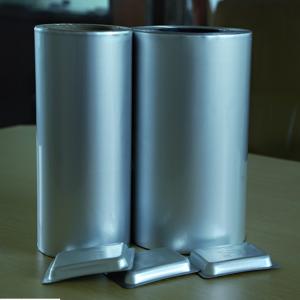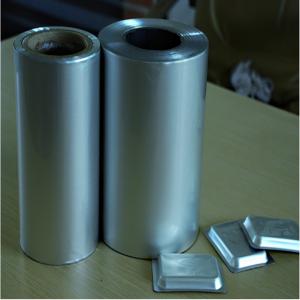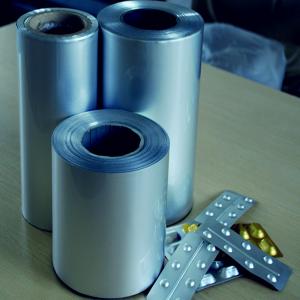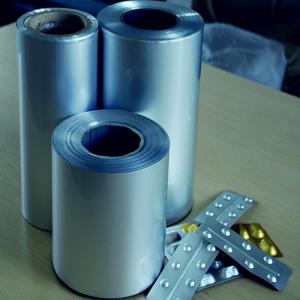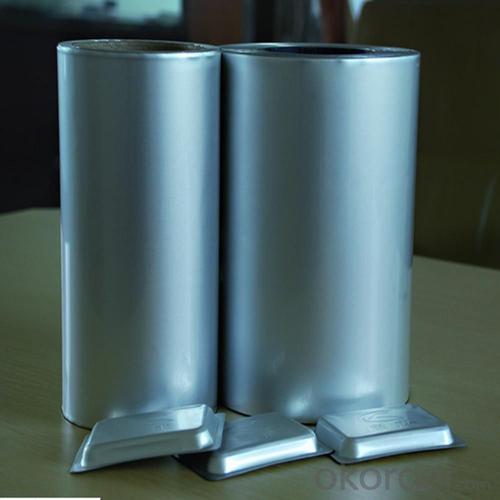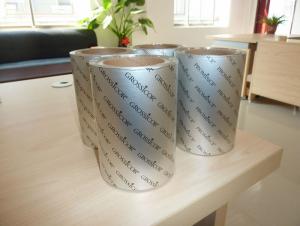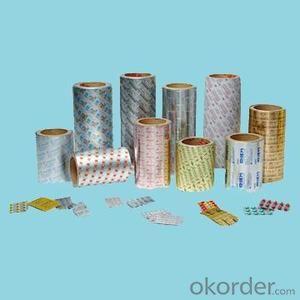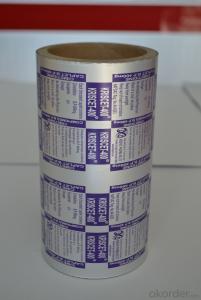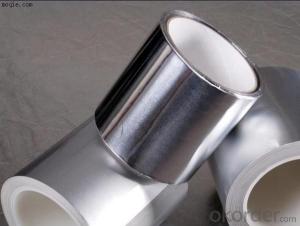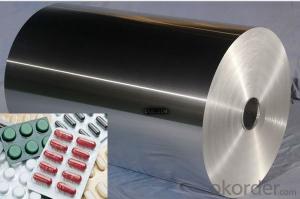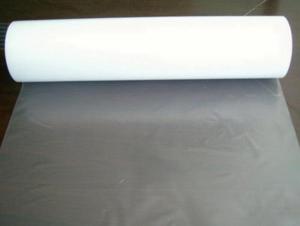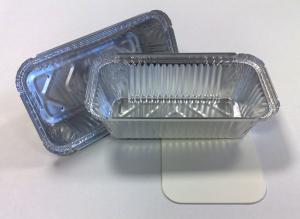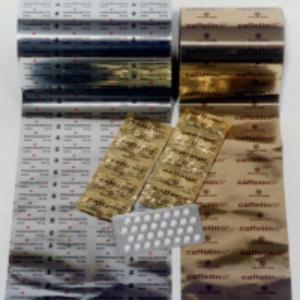Medicine Aluminum Foil
- Loading Port:
- China Main Port
- Payment Terms:
- TT or LC
- Min Order Qty:
- 20 Tons m.t.
- Supply Capability:
- 10000Tons Per Month m.t./month
OKorder Service Pledge
OKorder Financial Service
You Might Also Like
Specifications pharmaceutical aluminum foil for medicine
Inner hole diameter 76mm,
length/roll:1000m (according to different requirement).one side is for sealing with pvc or pvc/pvdc film and other side is for printing.one side is bright and other side is dull.
Technical Specifications of pharmaceutical aluminum foil for medicine
•Thickness: 0.02-0.3mm
•Width: 250-1280mm
•Material (alloy): 8011, 8021
•Temper:H18,O
Functions of pharmaceutical aluminum foil for medicine
High obstruction, Heat insulation, Air tightness, Printable, Breakable in slightly.
Medicine Aluminum Foil Applications:
Food Packing, Household Application, Cigarette Packing, Lamination, Medicine , Printing, Heat Sealing, Beer Packing, Roof Insulation Materials, Honeycome Materials and so on.
Blister Foil(cold forming)
•To be laminated, used for alu alu foil.
•Alloy: 8021
•Temper:O
•Gauge:0.045mm-0.075mm
•Width:200mm-1100mm
•Surface Finishing: one side bright, one side matte.
Blister Foil(PTP Packaging)
•Alloy:8011
•Temper:H18
•Gauge:0.02mm-0.03mm
•Width:200mm-1100mm
•Surface Finishing: one side bright, one side matte.
Why Us:
• More than 10 years experience, USD 800 million sales every year.
•Good quality control in production process,
• Excellent quality and Competitive price, OEM is available.
• Available in an extensive range of stock or custom size.
• Any port in China available.
• MOQ can meet your promotional business very well.
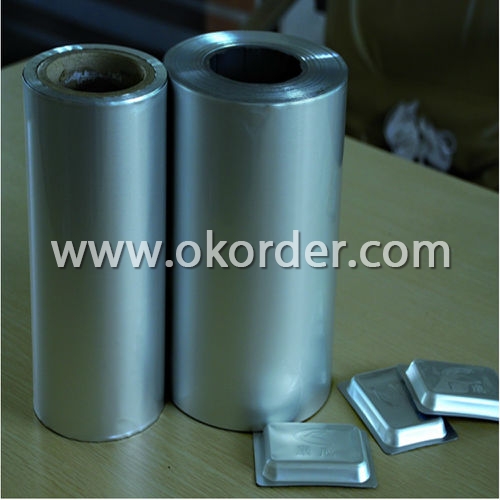
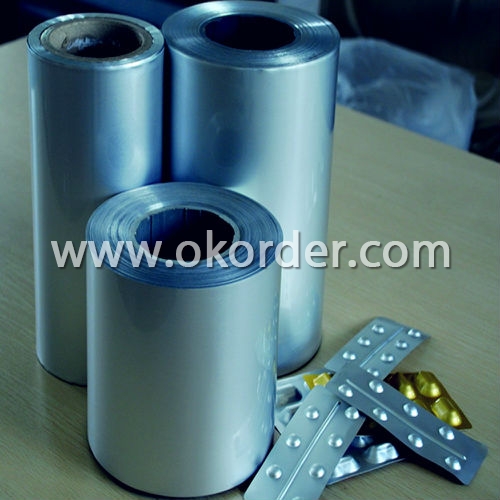
- Q: This question asks for methods to effectively clean aluminum surfaces without causing damage.
- <p>To clean aluminum surfaces effectively, use a mild detergent and warm water. Mix a few drops of dish soap with water in a bucket. Dip a soft cloth or sponge into the solution and gently wipe the aluminum surface. Avoid using abrasive materials or harsh chemicals, as they can scratch the surface. After cleaning, rinse with water and dry thoroughly to prevent water spots. For stubborn stains, use a non-abrasive cleaner specifically designed for aluminum. Regular cleaning will help maintain the surface's appearance and prevent corrosion.</p>
- Q: This question asks about the impact of adding silicon to aluminum alloys on their characteristics.
- <p>Adding silicon to aluminum alloys significantly enhances their properties. Silicon increases the alloy's strength and hardness, making it more durable. It also improves the alloy's resistance to corrosion, particularly in harsh environments. The addition of silicon can also reduce the melting point of the alloy, which can be beneficial for casting processes. However, it should be noted that excessive silicon content can lead to a decrease in ductility and workability of the alloy. Overall, silicon is a common alloying element used to improve the mechanical properties and performance of aluminum alloys in various applications.</p>
- Q: Explain the impact of adding magnesium to aluminum alloys on their characteristics.
- <p>Adding magnesium to aluminum alloys significantly enhances their strength, especially in the form of heat-treatable alloys known as Al-Mg or 5000 series alloys. Magnesium increases the alloy's resistance to corrosion, improves its formability, and raises its mechanical strength. These alloys are often used in applications requiring high strength-to-weight ratios, such as in the aerospace and automotive industries. The addition of magnesium also improves the alloy's weldability and resistance to stress corrosion cracking. However, it's important to note that excessive magnesium can lead to reduced ductility and increased susceptibility to stress corrosion cracking, so the amount added must be carefully controlled.</p>
- Q: This question asks for everyday applications of aluminum foil.
- <p>Aluminum foil has various uses in daily life. It's commonly used for food storage, wrapping leftovers to keep them fresh. It's also used in cooking, such as covering dishes to retain moisture or creating packets for steaming foods. Aluminum foil is great for lining baking sheets to prevent sticking and making cleanup easier. It's also used for insulation, like wrapping pipes to reduce heat loss. Additionally, it's used for arts and crafts, shining surfaces, and even as a makeshift reflector for sunlight. Its versatility makes aluminum foil a staple in many households.</p>
- Q: Is aluminum suitable for use in paint and coating applications?
- <p>Yes, aluminum can be used in paints and coatings. It is often used in the form of aluminum pigments or flakes, which provide a metallic appearance and enhance the durability and corrosion resistance of the coating. Aluminum pigments are also valued for their ability to reflect light and heat, making them useful in applications requiring thermal insulation or reflective properties. Additionally, aluminum can be used in powder coatings, providing a hard, wear-resistant finish.</p>
- Q: This question asks for the current cost of aluminum.
- <p>The cost of aluminum fluctuates based on market conditions and can vary by region. As of my last update, the price of aluminum was around $2,500 per metric ton, but this is subject to change. For the most accurate and up-to-date pricing, it's best to check with a commodity exchange or a reliable financial news source. Prices can be influenced by supply and demand, economic indicators, and geopolitical factors.</p>
- Q: This question asks about the methods to determine the safety of a specific brand's aluminum products.
- <p>To determine if a particular brand of aluminum products is safe to use, one should look for certifications and standards compliance. Check if the brand has certifications such as ISO 9001 for quality management systems or specific safety certifications relevant to aluminum products. Look for compliance with safety standards like ANSI, ASTM, or EN standards. Additionally, research customer reviews and testimonials, and consider third-party lab testing results. It's also important to inquire about the manufacturing process to ensure it adheres to environmental and health safety regulations. Lastly, consult with industry experts or regulatory bodies for their assessment of the brand's safety practices.</p>
- Q: What are some potential alternative uses for recycled aluminum that haven't been widely considered?
- <p>Recycled aluminum has a wide range of potential uses beyond the common ones like beverage cans and automotive parts. It can be used in the construction of buildings and infrastructure due to its strength and lightness. Additionally, it can be utilized in the aerospace industry for crafting aircraft components, given its resistance to corrosion and fatigue. In the electronics sector, recycled aluminum can be employed in the production of various components, such as circuit boards and casings. Moreover, it can be used in the creation of consumer goods like furniture, as well as in the packaging industry for food and pharmaceutical products. The versatility of recycled aluminum makes it a sustainable choice for many industries, reducing waste and environmental impact.</p>
- Q: Is it possible to use pure aluminum for crafting jewelry or sculptures?
- <p>Yes, you can use pure aluminum for jewelry making or sculpture, but it's not as common as other metals due to its lower melting point and softer nature. Pure aluminum is lightweight, affordable, and easy to work with, making it suitable for certain types of designs. However, it's not as durable or resistant to scratches as metals like silver or gold, and it may require special care to maintain its appearance. It's also important to consider the potential for allergic reactions, as some people are sensitive to aluminum.</p>
- Q: Is it possible to recycle aluminum in a landfill setting?
- <p>Aluminum can be recycled, but not in a landfill. Landfills are not designed for recycling; they are for waste disposal. Aluminum recycling typically occurs at specialized facilities where the metal is sorted, cleaned, and processed. Landfills can contaminate aluminum with other materials, making it unsuitable for recycling. Proper recycling of aluminum conserves resources and energy, and it's crucial to recycle aluminum through appropriate channels rather than disposing of it in landfills.</p>
Send your message to us
Medicine Aluminum Foil
- Loading Port:
- China Main Port
- Payment Terms:
- TT or LC
- Min Order Qty:
- 20 Tons m.t.
- Supply Capability:
- 10000Tons Per Month m.t./month
OKorder Service Pledge
OKorder Financial Service
Similar products
Hot products
Hot Searches
Related keywords
